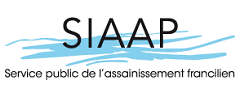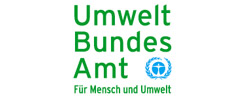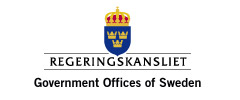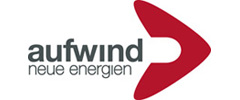Implementing the Budapest Commitments on Childrens Environmental Health
And Upcoming elections of 2 youth representatives for the EEHC
24.02.2005 |Sascha Gabizon
On 26-27 of January, the French ministry of Health hosted the first meeting of the reconstituted EEHC, the committee composed of members states and other stakeholders which will coordinate the follow-up of the Budapest Ministerial Conference (June 04).
At the meeting the role and tasks of the EEHC were decided, the approximate budget approved and identified which member states will pay for it, and it was agreed that a CEHAPE task force of a large number of members states will be set up. It was also agreed that 2 youth representatives will be added as members to the EEHC. Commitments were made by the member states in the EEHC on funding, organisation of meetings and starting the process of implementing the Budapest results.
The next meeting of the EEHC will be hosted by the EEA in Copenhagen on 1 and 2 June 2005.
Eco-Forum proposed to hold an NGO Budapest follow-up workshop on 23 or 24 of May in Almaty during the Almaty NGO conference preceding the Arhus Convention Ministerial meeting, or if not enough funds are available, during the Green Week in Brussel on 31 of May 2005. Further information will be send to the Eco-Forum listserve HealthEco-Forum@antenna.nl
Composition, role and tasks of EEHC
In the reconstituted EEHC there are 9 member states, from Western Europe and from Eastern-Europe and EECCA; Armenia, Austria, Bulgaria, Finland, France, Georgia, Italy, Norway and Serbia-Montenegro.
In addition, members of the EEHC include the European Commission and IGOs; UN-ECE, UNEP, EEA, OECD and WHO. The World Business Council for Sustainable Development, the Trade Unions, and in a final addition, the Regional Environment Center, are also members.
There are again 2 NGO members on the EEHC. EPHA – Genon Jensen director of EPHA-Environmental-Network – was mandated by their members to continue representing the health NGOs. The European Eco-Forum – Sascha Gabizon director of WECF – will continue representing the environmental NGOs until the next issue group elections.
The WHO Europe office hosts the secretariat.
France – Prof. W. Dab, Director General of the Health Ministry - was elected as chair of the EEHC until the next inter-ministerial meeting in 2007. Georgia – Dr. Zaal Lomtadze, deputy minister of Environment – was elected as co-chair of the EEHC.
Role and tasks of EEHC
The EEHC will work with the focal points in all the member states to stimulate implementation of the Budapest commitments, monitor and report on progress and prepare the next inter-ministerial meeting (2007) and the next conference (2009).To strengthen the exchange of experience the EEHC will use a different format of meetings then until now, by adding a 1 day experience-exchange day in which the Regional Priority Goals of the CEHAPE will be analysed and priorities developed. The 4 RPGs of the Children's Action Plan are Water and Sanitation, Indoor and Outdoor Air pollution, Accidents and human settlement and Chemicals and other hazardous substances.
The other themes in the Budapest declaration such as the Precautionary Principle, the Environment and Health Information System, the emerging issues Housing and Health and Climate Change and Health will also be the role of EEHC to properly address.
There will be 2 more EEHC meetings in 2005, on 1+2 June in Denmark – with thematic focus Regional Priority Goal ‘Air pollution and children’s health’ and in Nov/December 05 in Finland. Another 2 meetings in 2006 and 1 in 2007 followed by the inter-ministerial meeting of 2007.
CEHAPE taskforce
In addition to the EEHC, a larger group of member states will be working in the CEHAPE task force which will be entirely dedicated to implementing the Children Environmental Health Action Plan. Austria has volunteered to be the lead country for organising the CEHAPE task force, and has already a long experience as lead country for the PEP and CEHAPE preparations. Austria will host the first CEHAPE task force meeting in Vienna probably in early May 2005. The 1st taskforce meeting will prepare the thematic part of the EEHC meeting of June, and will therefore focus on indoor and outdoor airpollution and children’s heatlh. The EEHC approved the terms of reference for the CEHAPE taskforce. All 52 member states will be invited to take part in the CEHAPE taskforce and thus the meeting in Vienna. The IGOs, EU and NGOsA chair and vice-chair will be elected by the participants. Finland and Norway have also indicated that they will contribute to the work of the CEHAPE taskforce. The taskforce will meet at least once a year, but probably twice in 2005.Eco-Forum indicated that it is willing to participate in the CEHAPE taskforce meetings and would suggest to bring other NGO observers specialised on implementation in the 4 areas of the regional priority goals.
Eco-Forum also indicated that – as Austria had mentioned – visible results should be achieved already by 2007 and that it would be good to prioritise a number of actions which can be taken fast with little additional resources and which can bring a great improvement to children’s environmental health, these could include; warnings to consumers on hazardous chemicals in children’s products, halting existing practices of pesticide spraying in schools (e.g. Spain), enforcing non-smoking in school busses (e.g. Armenia) and informing citizen’s about health risks of waste burning in home and yard and municipal waste incineration.
2 Youth on the EEHC
The Irish ministry of Health presented a position paper on the benefits and ways of adding to youth representatives to the EEHC. The Irish government started with a programme of increasing youth participation in policy making several years ago and now has youth councellors in most towns which have lead to among other a great increase in participation in voting by young voters. The Irish ministry had brought a youth delegate – the spokesperson of youth at the Budapest conference - to the EEHC meeting to convince the members of the benefits of youth participation and what this would mean in terms of additional funds and resources. The cost of the youth participation would amount to the travel costs (of probably around 8000 USD per year) and the cost of one full-time staff by the organising ministry. The Irish ministry of health has committed to hosting a first meeting in Ireland with representatives of national youth organisations from member states in 2005, which will elect the 2 youth members for the EEHC. As the meeting will be held sometime mid-2005, the youth representatives will not join the next EEHC meeting in Copenhagen, but the next in Finland.The Norwegian ministry had also brought a youth delegate – representing a children’s aid organisation - who gave interventions in their area of expertise. The Norwegian government has committed to sending youth representatives to the meeting in Ireland and also, to funding a fair share to allow youth representatives from Eastern-European/EECCA countries to participate. Norway suggested that in addition to trying to balance youth representation by topic (health and environment) and region, it is preferable to also have gender balance.
Finland and Austria supported the suggestion for 2 youth representatives on the EEHC. Austria did warn that in their experience one does not want to create a youth ‘bureaucracy’, but preferably youth from the grassroots, the way Austria had selected their youth representatives for Budapest, which were 3 girls, winners of school contests on sustainable mobility.
In discussion in the corridors it appeared that some of the other member states do not understand the benefits of youth participation in general and in the EEHC in particular, but they did not officially object, therefore the EEHC will get its 2 youth representatives.
Other info’s:
France testing 700 households and 100.000 citizen’s on pollutionThe French ministry of health informed that it is carrying out 2 large research projects. One on health effects of housing, in which 700 households and several schools had been tested on in-door air pollution. Particularly the schools tested proved to be very unhealthy. Currently also 100.000 people living under the fumes of waste-incinerators are being tested (blood) on dioxins and other persistent toxic chemicals. This study was started as evidence has been growing that specific cancers occur in particular with citizen’s living under the fumes of waste-incinerators. France is also analysing the results of it’s National Environmental Health Action plan so far and will publish the results shortly. It seem that in particular the local plans (LEHAPS) have been successful.


































